The Creator's Name
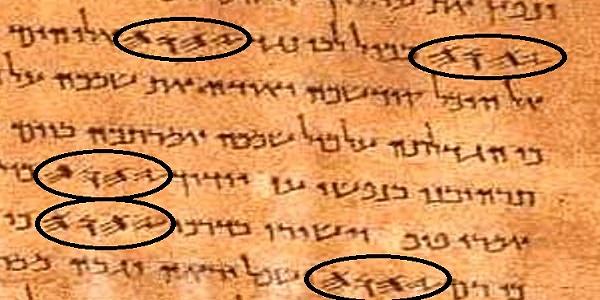
Paleo Hebrew
Who hath ascended up into heaven, or descended? who hath gathered the wind in his fists? who hath bound the waters in a garment? who hath established all the ends of the earth? what is his shem [name], and what is his son's shem [name], if thou canst tell? Proverbs 30:4
What is the Creator's name?
The name or title by which one refers to the Creator has long been a subject of interest. Who is the Creator of the universe, and what is his name? What is being proposed here, is some evidence, from Scripture, of the Creator's actual name. While various titles, including God, Lord, the Great King, the Almighty, etc have been applied to the Creator, he must certainly have a personal name, a name which expresses his nature and being as names applied to individuals did in Hebrew culture. Scripture tells us to call upon His name.
The only ‘Name’ that was ever given to mankind by the creator, when Mosheh/ Moses asked, what was His hebrew name, יהוה.
|
And יהוה said, “I have indeed seen
the oppression of My people who are in Mitsrayim [Egypt], and have heard
their cry because of their slave-drivers, for I know their
sorrows. And Elohim said to Mosheh, “I am who I am.” [I will be] And He said, “Thus you shall say to Bnei-Yisra’ěl, ‘I am has sent me to you.’ ” And Elohim said further to Mosheh, “Thus you are to say to Bnei-Yisra’ěl, יהוה/ Iehouah [as rendered in the Geneva Bible 1587, before the letters J or Y] Elohim of your fathers, the Elohim of Aḇraham, the Elohim of Yitsḥaq, and the Elohim of Ya‛aqoḇ, has sent me to you. This is My Name forever, and this is My remembrance to all generations.’ Exodus 3:7-15 TS 2009 |
|
I will take the cup of salvation (Iehoshû‛âh), and call upon the name [shêm] of יהוה. Psalm 116:13 I will offer to thee the sacrifice of thanksgiving, and will call upon the name [shêm] of יהוה. Psalm 116:17 For then will I turn to the people a pure language, that they may all call upon the name [shêm] of יהוה, to serve him with one consent. Zephaniah 3:9 And it shall come to pass, that whosoever shall call on the name [shêm] of יהוה shall be delivered: for in mount Zion and in Jerusalem shall be deliverance, as יהוה hath said, and in the remnant whom יהוה shall call. Joel 2:32 |
The Father gave Moses the name Iehouah [YHVH, Yahweh, Yahuah, Yahovah]
A DISCOVERY:
Evidence in the B'rit Chadashah/ New Testament:
Iehôshûa‛
[Yehôshûa‛, Yeshua,
Jesus]
tells her [Samaritan woman], “I—the One speaking to you—I am
[Ahâiâh/ eimi (Greek) I exist]
John
4:26
TLV
אהיְשׁוּעָה
saith unto her
[Samaritan woman],
I that speak unto thee
am
[Ahâiâh]
he
(he is added in KJV
English).
John
4:26
Iehuḏah (hb. יְהוּדָה/
gr. Ἰουδάς, Ioudas, Judas, Judah, Yehudah)
the disciple who betrayed the Messiah
[Iehoshû‛âh],
is archetypal of the Iehudim, Iehuḏah who rejected their Kinsman
Redeemer (the Lion of Iehuḏah). It was necessary that He must shed
His blood to redeem His bride (genuine Israel and all those grafted
in).
Iehudah then, having received a band
of men
[possibly 400 - 600 men: a tenth
part of a legion; they were serious; didn't want Him to escape]
and officers from the chief priests and Pharisees, cometh
thither with lanterns and torches and weapons.
Iehoshua
therefore, knowing all things that should come upon him, went
forth, and said unto them, Whom seek ye?
They answered him,
Iehôshûa‛ of Natsareth.
Iehôshûa‛
saith unto them, "I am"
he [gr.
εἰμί - eimi; hb. -
הָיָה
aHâiâh]
[he is added in English]. And
Iehudah
[Judas] also, which betrayed him, stood with them.
As soon then as he had said unto them,
"I am" he
[he is added in English],
they went backward, and fell to the ground.
"I am" [Ahâiâh]
likely the same word spoken to Moses (Exodus 3:14); that is why the
group fell down. He could have wiped them all out. But He didn't.
Most likely the most powerful, perfect word in the universe. Hidden
from humanity for millennia. One day soon we will hear it. What a
day that will be!
The Jews answered him [Pilate}, “We have
a law, and according to our law He ought to die, for He has made
Himself the Son of Alohim.”
John
19:7-9
Messiah's silence was His answer. He had to finish the arduous task
He came for.
Messiah knew exactly what He was doing when he picked this
individual.
John 18:1-6
When
Iehôshûa‛ [Yehôshûa‛, Yehshua, Jesus]
had spoken these words, he
went forth with his disciples over the brook Cedron, where was a
garden, into the which he entered, and his disciples.
And
Iehudah
[Judas, Judah]
also, which betrayed him, knew the place: for
אהיְשׁוּעָה
ofttimes resorted thither with his disciples.
So when Pilate heard this word, he was more afraid, and went back
into the palace, and asked
Iehôshûa‛, “Where are You from?” But
Iehoshua
gave him no answer.
Research by Nehemiah Gordon of
various ancient Codex copies:
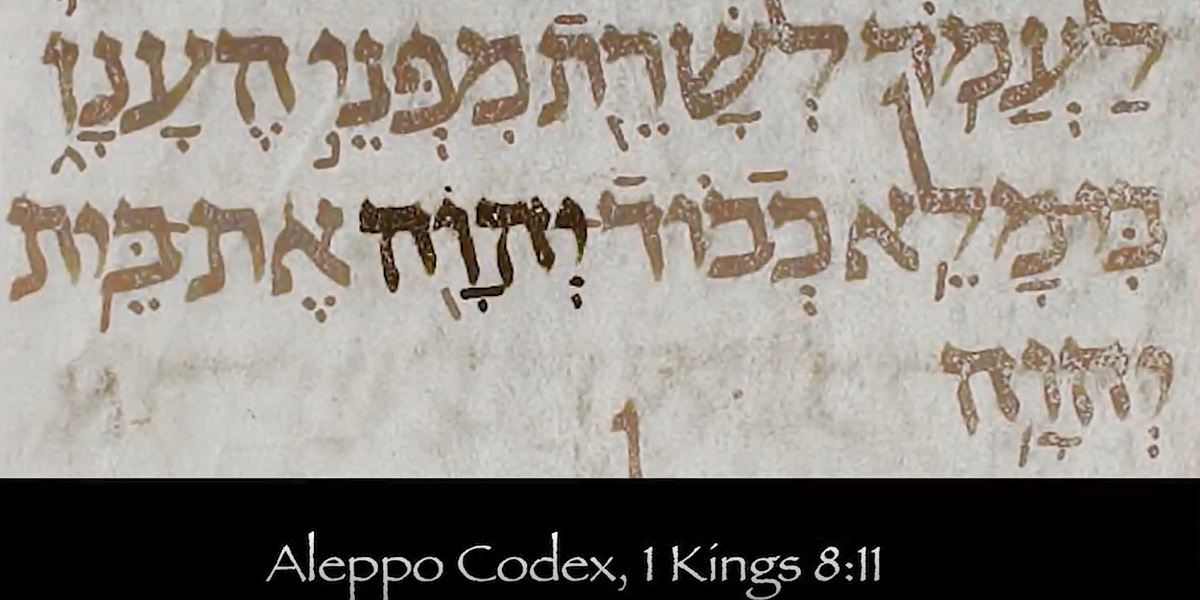
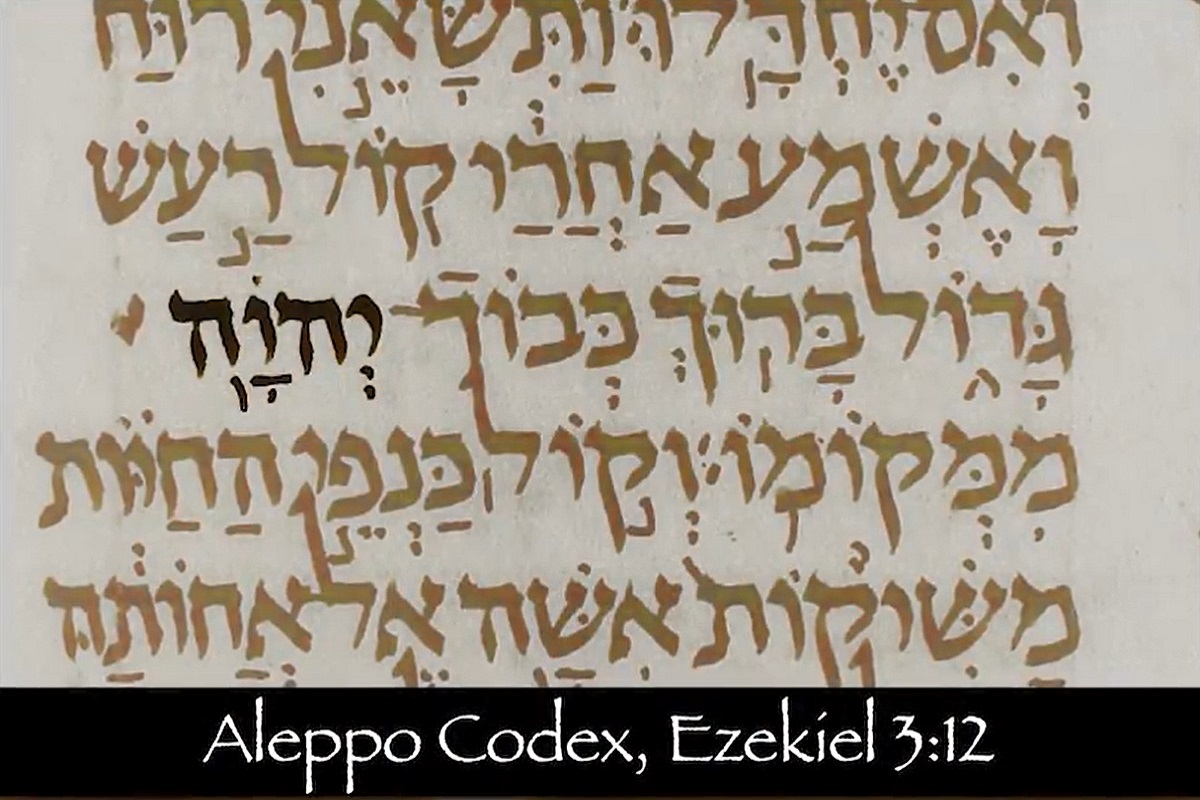
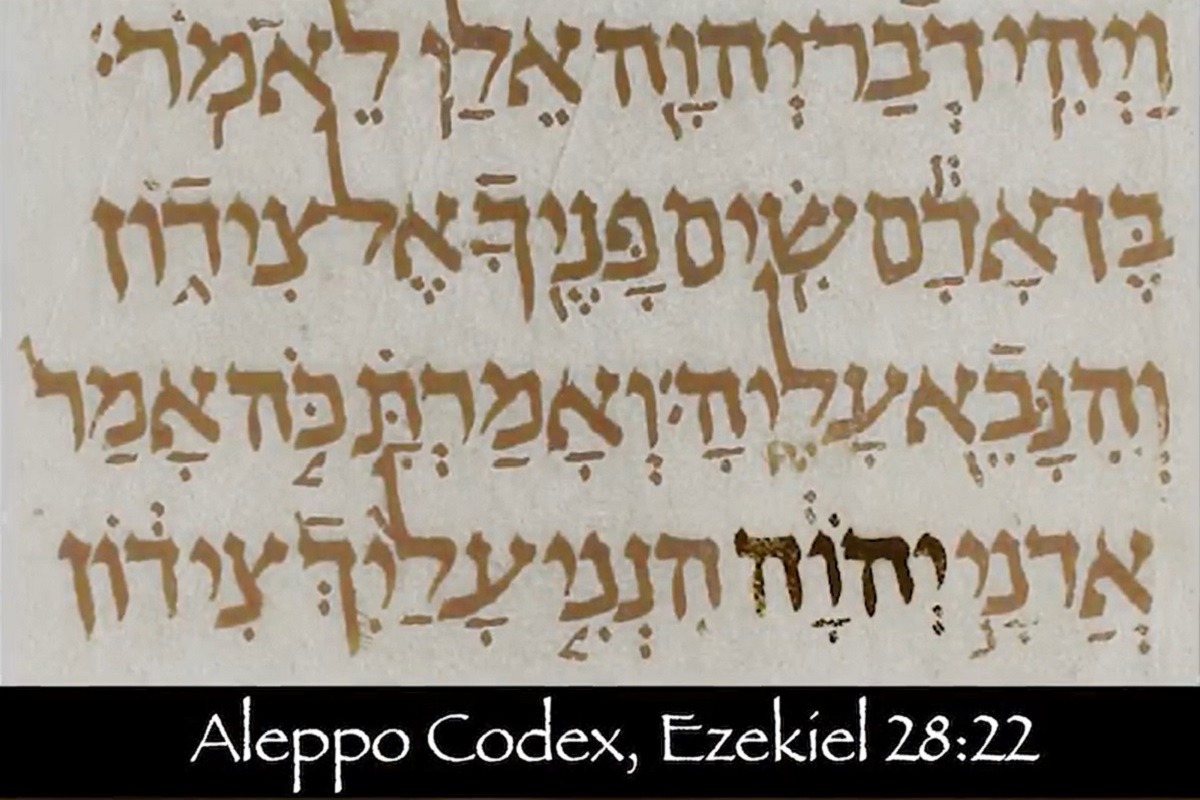
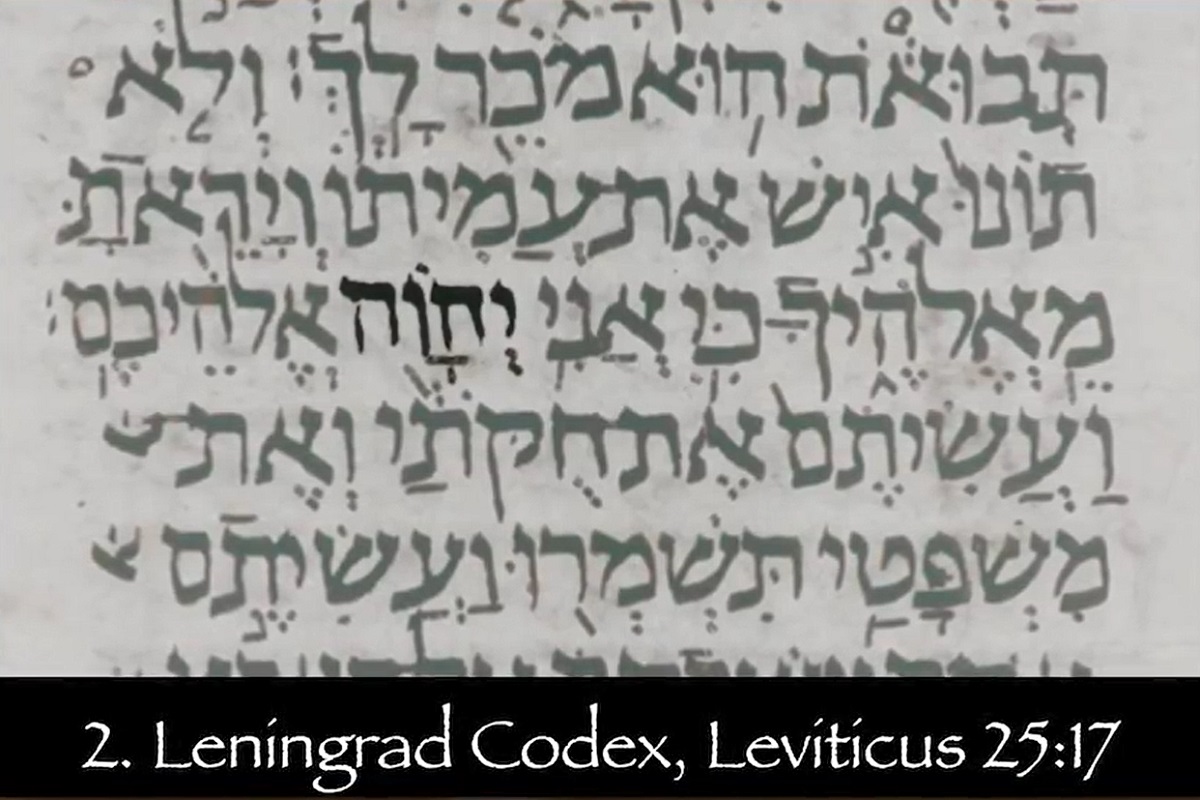
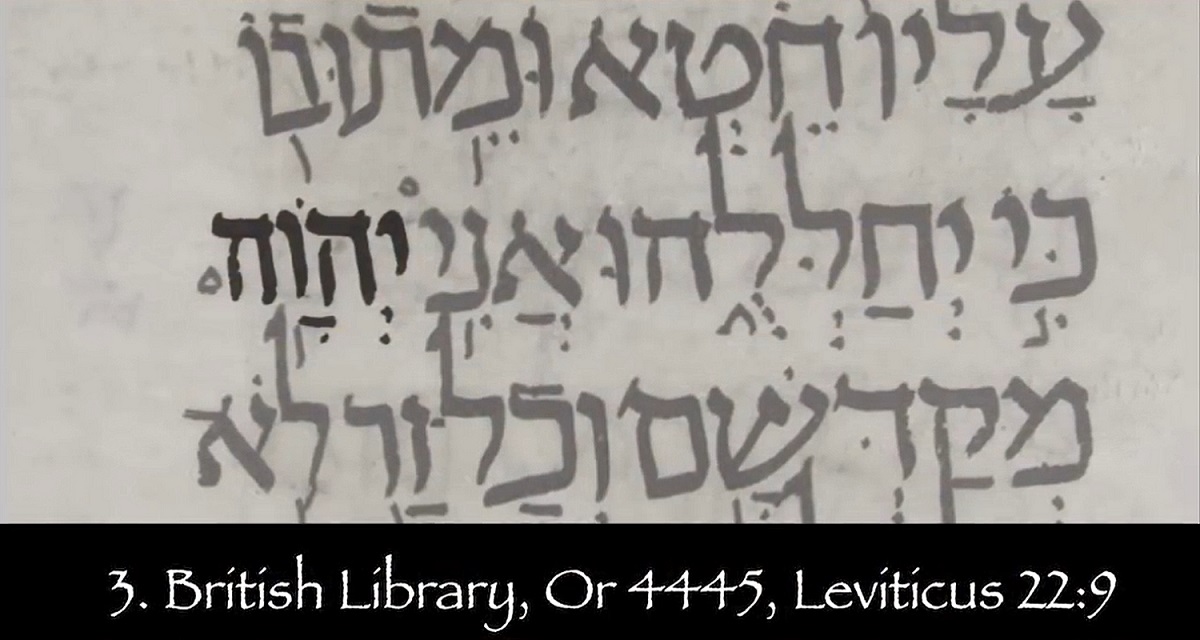
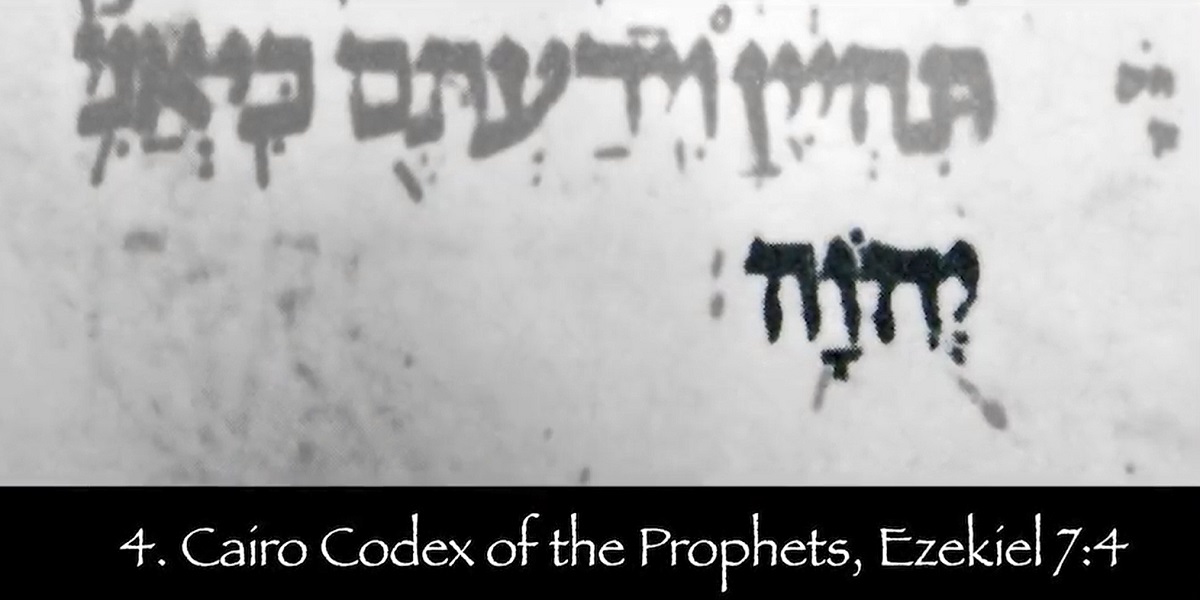
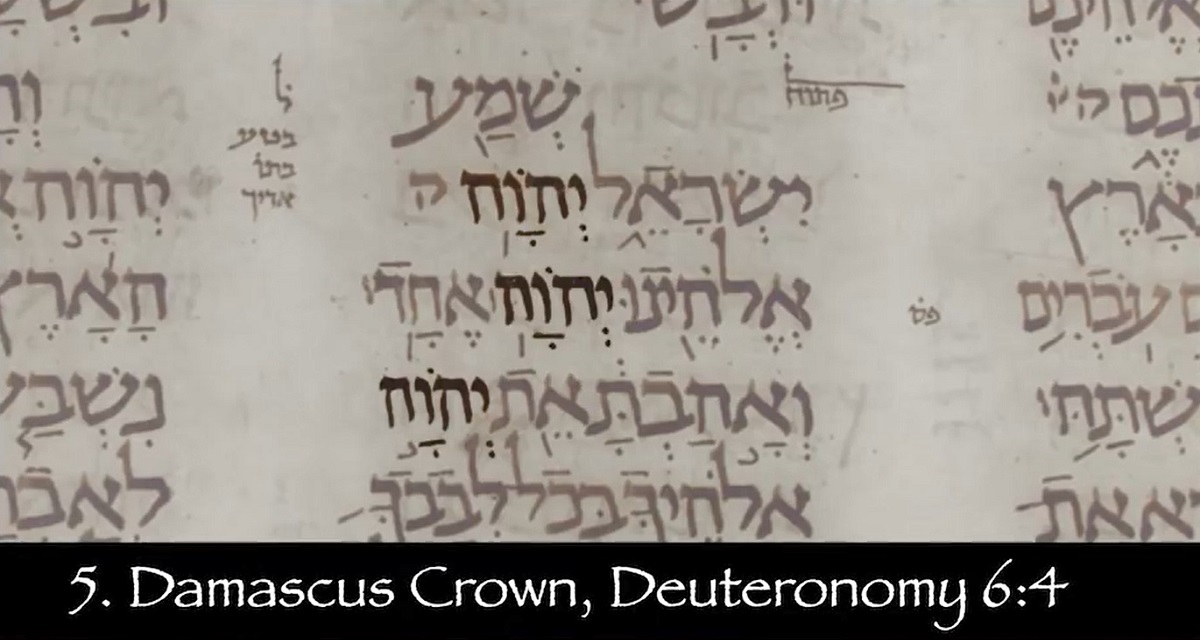
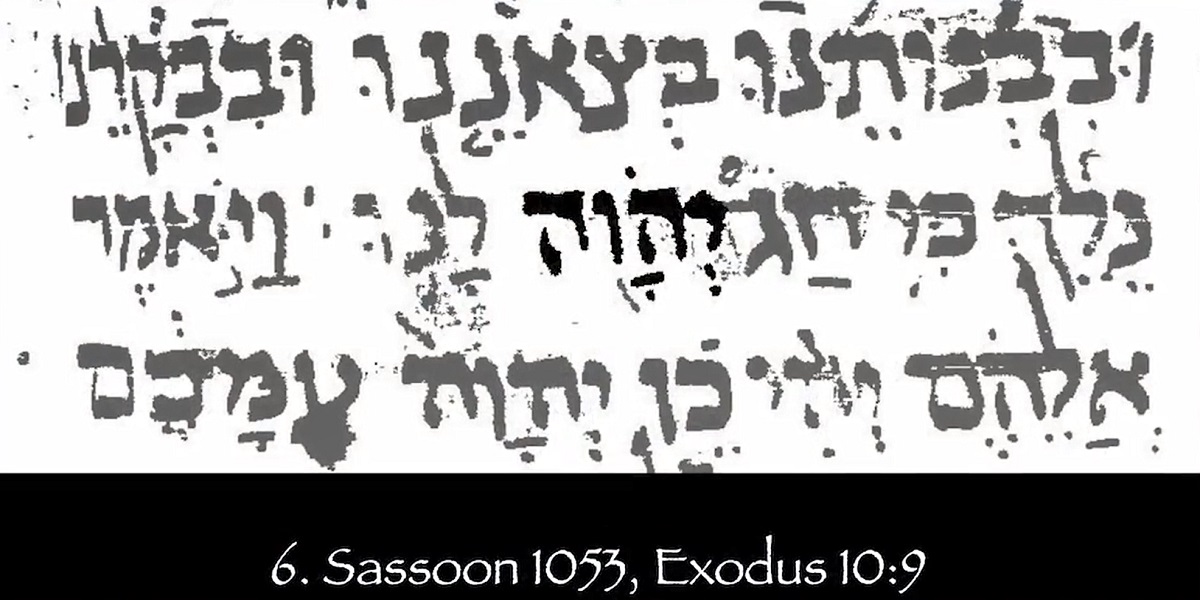
Important!
Then those who revere
Iehouah
spoke with each other, and Iehouah
took notice and heard, and a scroll of
remembrance was written before Him, for those who
revere/ reverance Iehouah ,
even those who esteem/ thought upon His Name.
|
|
G245
Ἰουδάς Ioudas ee-oo-das' Of Hebrew origin [H3063]; Judas (that is, Jehudah), the name of ten Israelites; also of the posterity of one of them and its region: - Juda (-h, -s); Jude. |
|
H3063 יְהוּדָה yehûdâh yeh-hoo-daw' From H3034; celebrated; Jehudah (or Judah), the name of five Israelites; also of the tribe descended from the first, and of its territory: - |
|
H3034 |
| H3027 יָד yâd yawd A primitive word; a hand (the open one (indicating power, means, direction, etc.), in distinction from H3709, the closed one); used (as noun, adverb, etc.) in a great variety of applications, both literally and figuratively, both proximate and remote: - (+ be) able, X about, + armholes, at, axletree, because of, beside, border, X bounty, + broad, [broken-] handed, X by, charge, coast, + consecrate, + creditor, custody, debt, dominion, X enough, + fellowship, force, X from, hand [-staves, -y work], X he, himself, X in, labour, + large, ledge, [left-] handed, means, X mine, ministry, near, X of, X order, ordinance, X our, parts, pain, power, X presumptuously, service, side, sore, state, stay, draw with strength, stroke, + swear, terror, X thee, X by them, X them-selves, X thine own, X thou, through, X throwing, + thumb, times, X to, X under, X us, X wait on, [way-] side, where, + wide, X with (him, me, you), work, + yield, X your-selves |
|
H1961 הָיָה hâyâh haw-yaw' A primitive root (compare H1933); to exist, that is, be or become, come to pass (always emphatic, and not a mere copula or auxiliary): - beacon, X altogether, be (-come, accomplished, committed, like), break, cause, come (to pass), continue, do, faint, fall, + follow, happen, X have, last, pertain, quit (one-) self, require, X use |
|
H1933 הָוָה הָוָא hâvâ' hâvâh haw-vaw', haw-vaw' A primitive root (compare H183, H1961) supposed to mean properly to breathe; to be (in the sense of existence): - be, X have. |
|
G1510 εἰμί eimi i-mee' First person singular present indicative; a prolonged form of a primary and defective verb; I exist (used only when emphatic): - am, have been, X it is I, was. See also G1488, G1498, G1511, G1527, G2258, G2071, G2070, G2075, G2076, G2771, G2468, G5600. |
and may be freely redistributed without restriction if topic is copied in its entirety.Proper consideration should be given to all copyrighted materials on other linked sites.
Walk in the Light.ca
